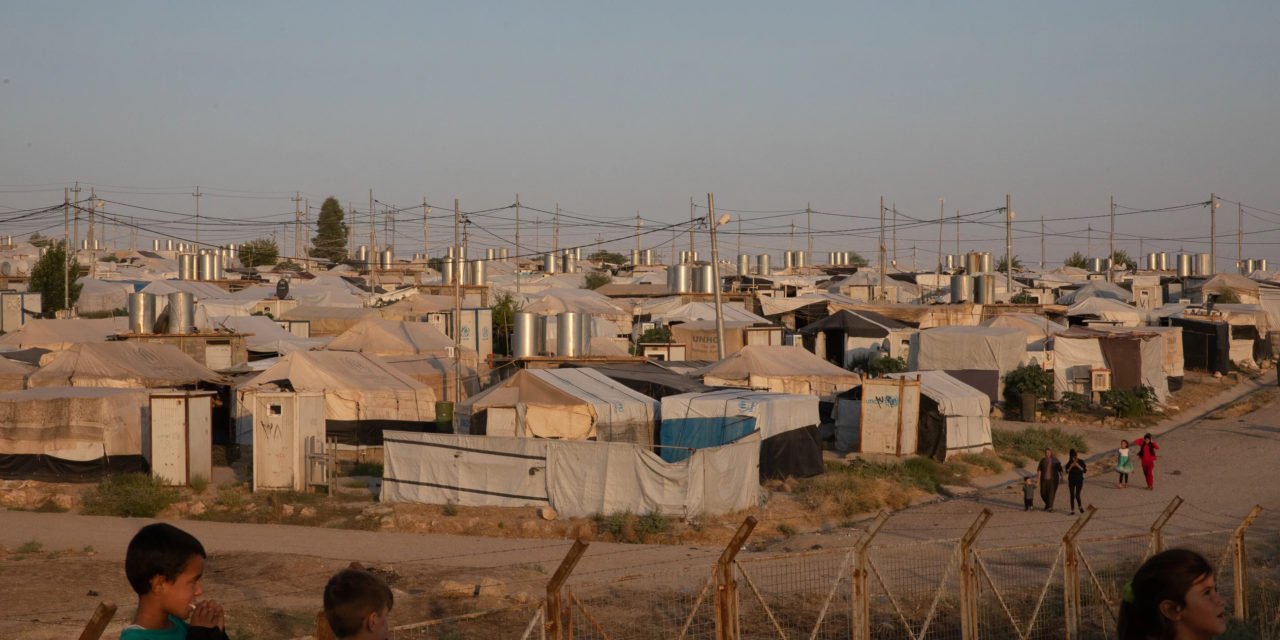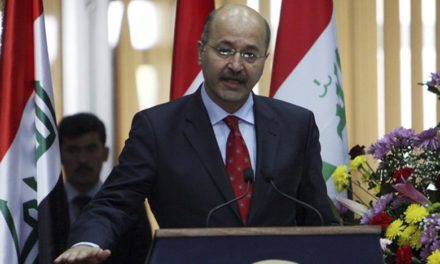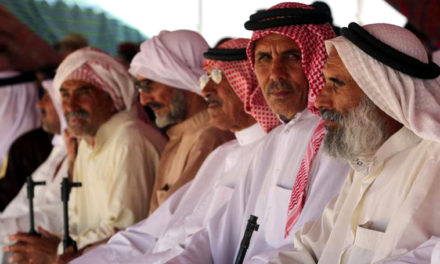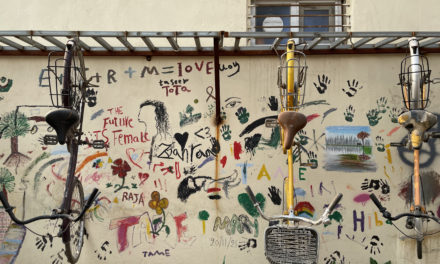(Photo: Andrea DiCenzo/NPR)
Fires have become tragically common in displacement camps housing Iraqi Yazidis who fled ISIS genocide in 2014. On July 28th, 2023, the latest blaze swept through the Dawudia camp, burning about 20 tents. This follows an April 10th fire that destroyed tents in the Kabarto IDP camp in Duhok. Even more devastating was a February 2023 fire in the Chamshko camp that killed two young brothers, ages 2 and 4. These incidents echo an alarming pattern. In September 2022, 25 tents were lost in the Bajet Kandala camp fire. In 2021, a blaze in the Shariya camp destroyed 400 tents and injured 25. There are many more that never make headlines. Nine years after ISIS forced Yazidis to flee their homes, around 200,000 Yazidis remain displaced, with many still residing in tented camps vulnerable to fire.
Officials frequently attribute the causes of fire incidents to either individual negligence in taking safety precautions or insufficient resources for a prompt response. However, most of these tragedies could have been prevented if authorities, as well as the humanitarian organizations overseeing the camps, had provided sufficient resources for displaced Yazidis to upgrade their tents and had not prevented them from constructing rooms with cement or concrete blocks. The inadequate response of the federal and regional governments’ and humanitarian organizations’ to the Yazidi displacement, due to a lack of emphasis on long-term shelter solutions and a limited understanding of displacement as a temporary situation resolvable only through return, has significantly contributed to the hardships they continue to endure.
While Sinjar, the ancestral homeland of the Yazidis, holds immense significance, and many displaced Yazidis both in Iraq and abroad yearn for an eventual return, the approach to their displacement in the camps has involved forcing them to return by creating increasingly unbearable conditions. Initially, Yazidi IDPs, vulnerable and unable to afford housing in urban areas, viewed the newly established camps as a positive solution due to limited housing alternatives. However, despite their initial optimism, the camp experience has been far from positive for many, as they often stated in my interviews, leading them to feel trapped in a prison-like environment.
In the early years, displaced Yazidis were forbidden from upgrading their tents with robust materials like cement or concrete blocks due to two major factors. First, Yazidis’ homeland, Sinjar, has been a battleground for political conflict between the federal Government of Iraq and the Kurdistan Regional Government, adding to the Yazidis’ suffering. These governments view any demographic changes in disputed territories as potential threats to their power dynamics, leading to their reluctance in allowing Yazidis to establish new homes outside their original areas. There has been a zero-integration policy for IDPs, including Yazidis, in Iraqi Kurdistan. Secondly, exacerbating the politics surrounding the resettlement of Yazidis in Iraqi Kurdistan, this prohibition also mirrors the overall approach adopted by humanitarian and governmental organizations towards displacement. These organizations perceive displacement as a temporary and short-term crisis, rather than a long-lasting predicament. The displacement of Yazidis was treated similarly. Aid agencies and government organizations, encompassing UNHCR, the Joint Crisis Coordination Center of Iraqi Kurdistan, and the federal Ministry of Migration and Displacement, prevented them from constructing permanent shelters under the belief that their displacement situation would be resolved shortly. This limited perspective often ignores the actual realities of displacement, which has become a prolonged and persistent issue, with refugees facing displacement for an average of 20 years and IDPs for over 10 years.
In June 2022, after a string of devastating fires that had occurred in other camps where displaced Yazidis were housed, officials from the Kurdistan Regional Government announced their intention to permit Yazidis to self-upgrade their tents. However, for many Yazidi IDPs, this announcement comes far too late, as they are now grappling with the worsening economy in Iraq, along with the fact that the Covid-19 pandemic has drained the savings of many families. It is unfortunate that this announcement was not made earlier, during the initial years of displacement, when aid was more accessible, and the Yazidis’ suffering had not been relegated to the background in local and international media.
Yazidis must be granted the right to return to their ancestral homeland of Sinjar if they so choose, but they should never be forced to endure life under mere tents, trapped in limbo without the ability to establish new permanent homes elsewhere. It is deeply disquieting that displaced Yazidis continue to be tormented by harsh living conditions, living under the frail shelters of plastic tents. Each day and night is marked by the omnipresent fear of fires, a horrifying threat that jeopardizes not just their scant belongings, but their very lives. The anniversary of the Yazidi genocide should not merely serve as a bleak reminder of a terrifying past, but as a stark wake-up call for the present. It is far past time for humanitarian organizations, along with the Iraqi and Kurdish governments, to acknowledge their shortcomings and cease treating these camps as mere temporary holding zones.
With the United Nations Assistance Mission for Iraq announcing a new approach that shifts focus from emergency response to development, the pressing need to prioritize providing stable, safer housing solutions for Yazidi IDPs has never been more apparent. There is a pressing need to prioritize the provision of stable, safer housing solutions for Yazidi IDPs. The lack of a clear path to return to Sinjar for many, means the imperative for more sustainable living conditions is more crucial than ever. This mission ought to be executed in close collaboration with the Yazidi community, to ensure that their specific needs are met, and that their rights to rebuild their lives with dignity and security are upheld. Even if a return to Sinjar remains an elusive dream for many, the governments and humanitarian organizations must ensure that Yazidis’ present and future are not mired in the same hardship that has marked the past nine years of their lives.

Houman Oliaei
Houman Oliaei is an Assistant Professor of Anthropology at Babson College and holds PhD and MA degrees in Anthropology from Brandeis University. His research areas encompass the anthropology of humanitarianism, political theory, forced migration, and Middle East studies, with a current focus on the experiences of Yezidis displaced in northern Iraq following the 2014 genocide by ISIS.










